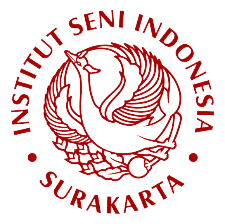MAKE A SUBMISSION
ADDITIONAL MENU
JOURNAL TEMPLATE

TOOLS
INDEXING

Kala Citra: Indonesian Journal of Photography and Visual Studies is committed to upholding the highest standards of academic integrity and originality. Plagiarism in any form, including the unauthorized use of text, ideas, or data, is strictly prohibited. All submissions are screened using plagiarism detection software, and manuscripts with a similarity index exceeding 20% will be returned to the authors for revision. This threshold encompasses all text matches, with exceptions granted for properly cited quotations and references. Authors are accountable for ensuring their work is original, duly attributed, and free from unethical practices such as self-plagiarism or data fabrication. Manuscripts found to contain significant plagiarism will be rejected, and repeated violations may result in a ban from future submissions.
The journal adheres to the guidelines set by the Committee on Publication Ethics (COPE). Below are the ethical responsibilities of all parties involved in the publication process:
Fairness and Impartiality:
Editors evaluate manuscripts based on their intellectual content, without regard to the authors’ race, gender, sexual orientation, religion, ethnicity, citizenship, or political beliefs.
Confidentiality:
Editors and editorial staff must not disclose any information about submitted manuscripts to anyone other than the corresponding author, reviewers, or publisher.
Conflict of Interest:
Editors must recuse themselves from handling manuscripts in which they have a conflict of interest, and ensure that such conflicts are disclosed and managed appropriately.
Decision-Making:
Editors are responsible for making final decisions on manuscript acceptance or rejection, based on the validity of the work, its importance to the field, and reviewers’ recommendations.
Transparency and Accountability:
Editors must ensure that the peer review process is fair, unbiased, and transparent. They should also be willing to publish corrections, clarifications, or retractions when necessary.
Contribution to Editorial Decisions:
Reviewers assist editors in making editorial decisions and help authors improve their manuscripts through constructive feedback.
Promptness:
Reviewers must complete their reviews within the agreed timeframe. If unable to do so, they should notify the editor immediately.
Confidentiality:
Reviewers must treat all manuscripts as confidential documents and not share or use any information from unpublished manuscripts for personal gain.
Objectivity:
Reviews should be conducted objectively, with no personal criticism of the authors. Reviewers must express their views clearly and support them with evidence.
Conflict of Interest:
Reviewers must disclose any conflicts of interest and decline to review manuscripts where such conflicts exist.
Originality and Plagiarism:
Authors must ensure that their work is entirely original and properly cited. Plagiarism in any form is unacceptable.
Data Accuracy:
Authors must present accurate data and avoid fabrication, falsification, or manipulation of research findings.
Multiple or Concurrent Submissions:
Authors must not submit the same manuscript to more than one journal simultaneously.
Authorship and Acknowledgments:
Authorship should be limited to those who have made significant contributions to the research. All contributors must be acknowledged appropriately.
Disclosure and Conflicts of Interest:
Authors must disclose any financial or personal relationships that could influence the research or its interpretation.
Compliance with Ethical Standards:
Authors must ensure that their research complies with ethical standards, particularly when involving human or animal subjects.
Support for Ethical Standards:
The publisher supports the journal in maintaining high ethical standards and ensures that editors, reviewers, and authors adhere to these principles.
Transparency and Accessibility:
The publisher ensures that the journal operates transparently and that all published content is accessible to the academic community.
Handling Misconduct:
The publisher is responsible for investigating and addressing cases of ethical misconduct, including plagiarism, data fabrication, and authorship disputes.
Archiving and Preservation:
The publisher ensures the long-term preservation and accessibility of published content through digital archiving.
Support for Editors:
The publisher provides editorial independence and supports editors in making fair and unbiased decisions.
Kala Citra aligns with the standards outlined by the Committee on Publication Ethics (COPE), and it is incumbent upon all authors to uphold the highest ethical standards in their scholarly endeavors.
MAKE A SUBMISSION
ADDITIONAL MENU
JOURNAL TEMPLATE

TOOLS
INDEXING

 |
Publisher: |
| Kala Citra: Indonesian Journal of Photography and Visual Studies | |
| Photography Department, Faculty of Fine Arts and Design | |
| Institut Seni Indonesia (ISI) Surakarta | |
| Jl. Ringroad Mojosongo, Surakarta, Jawa Tengah, Indonesia, 57127 | |
| Email : kalacitra@isi-ska.ac.id |
This work is licensed under a Creative Commons Attribution-ShareAlike 4.0 International
